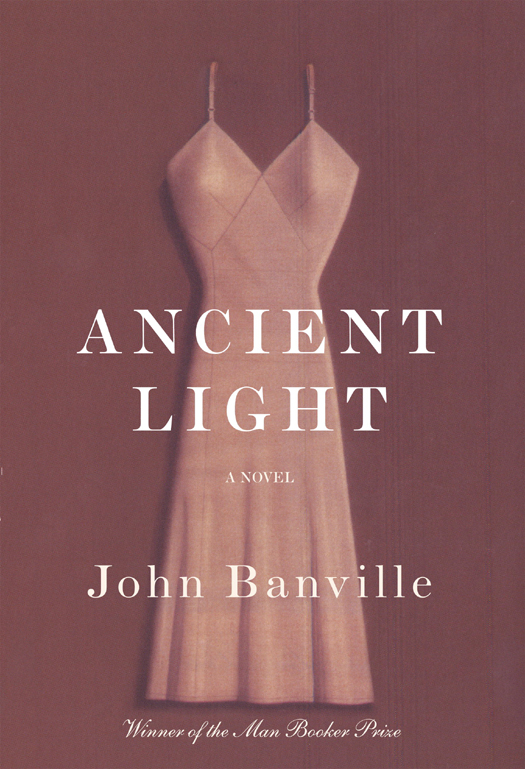
The Infinities
کتاب های مرتبط
- اطلاعات
- نقد و بررسی
- دیدگاه کاربران
نقد و بررسی

Starred review from November 23, 2009
Having apparently exorcised his taste for bloody intrigue with his pseudonym, Benjamin Black, Banville returns to high form (and his given name) with a novel even more pristine than his Booker-winning The Sea
. Old Adam Godley lies dying, flying through his past on the way to eternity while his brooding son (also named Adam) sleepwalks through his marriage to the amorous Helen, and young Adam's “loony sister,” Petra, writes an encyclopedia of human morbidity. But Adam and his brood are not alone, nor is our narrator any detached third person: the gods are afoot, chiefly Hermes, disguised as a farmer, whispering to us of mortal love, guiding old Adam on his way, and laying bare all the Godleys' secrets while divine Zeus conducts “illicit amours” with Helen. Hermes assures us that mortal speech is “barely articulate gruntings,” yet Banville has the perfect instrument for his textured prose, almost never as finely tuned as this. The narrative is rife with asides, but it is to the common trajectory of a life that—despite the noise crowding ailing Adam's repose—it lends its most consoling notes, elevating the temporal and profane to the holy eternal.

February 15, 2010
The Booker Prize–winning Irish author's 15th novel is a (perhaps excessively) droll romantic comedy reminiscent of both Shakespeare's gossamer romps and Iris Murdoch's playful metaphysical gameswomanship.
It's an unexpected offering from the creator of such mordant psychodramas as Ghosts (1993), Eclipse (2001) and Shroud (2003), though mortality and all its disagreeable attributes are its subject. The setting is Arden, the Irish countryside home where renowned mathematician and physicist Adam Godley is dying, consoled by his still-functional mind's concentration on his pet theory that the existence of an infinity of infinities—and therefore of innumerable multiple worlds for us all to inhabit—is a logical, and hence arguably a literal possibility. Outside"Old Adam's" thoughts, downstairs Arden houses the patriarch's son and namesake, young Adam's super-gorgeous spouse Helen, his paranoid termagant sister Petra (who's compiling an encyclopedia of indignation and despair) and the siblings' well-meaning but basically ineffectual mum Ursula. Their somewhat dreary lives are…well, enlivened by the presence of the Greek gods themselves, whose interrelations with humans (notably, the randy Zeus's, with Helen) are recounted to us in accents of unimpeachable archness by Hermes, messenger to the gods, son of Zeus, and patron of assorted scalawags and doers of misdeeds. Not much happens, alas. But we do get to watch Hermes emulate his dad by seducing the ungodly Godleys' housekeeper while rather fetchingly disguised. And Petra is so engagingly nasty, we almost wish she had found her way into a play written by Samuel Beckett (whose skeletal prose style broods gently over these pages, along with oodles and scads of Shakespearean echoes). It's a strange bird of a book, perhaps a cross between Thorne Smith's caper The Night Life of the Gods and the aforementioned Murdoch at her most inventive (one thinks of her 1969 novel Bruno's Dream, a brilliant improvisation woven around another old man's looming death).
Beautifully written, perversely entertaining and well worth a close look.
(COPYRIGHT (2010) KIRKUS REVIEWS/NIELSEN BUSINESS MEDIA, INC. ALL RIGHTS RESERVED.)

Starred review from January 15, 2010
In his first novel since the 2005 Man Booker Prize-winning "The Sea", Banville reminds the world that he is one of the best prose stylists at work today. He gives us a day in the life of the Godley siblings, who have gathered at the bedside of their comatose father with their stepmother. Narrated from the perspective of the god Hermes, the tale oscillates between the Godley family on Earth and the lives of the immortal gods. The two worlds collide throughout the novel, as the gods intervene in events transpiring among Godley family members. The drama that ensues results from the gods' ability to impersonate human beings on Earth, where they often engage in lascivious activity. At the same time, the interplay between the gods and human beings explores larger existential concepts concerning identity. The plot unfolds like a matryoshka doll, as the masks of individual characters are removed to reveal other masks. VERDICT Choosing introspective character description over rich plotlines, Banville here puts his writing prowess on full display. This work will appeal to readers who enjoy the work of John Updike or Vladimir Nabokov. [See Prepub Alert, "LJ" 10/1/09.]Joshua Finnell, Denison Univ. Lib., Granville, OH
Copyright 2010 Library Journal, LLC Used with permission.

Starred review from January 1, 2010
A writer of protean powers, Banville may have siphoned off his darker impulses in the elegant crime fiction he has written as Benjamin Black because his newest literary novel is a metaphysical frolic, albeit not without shadows. The Booker Prize winner retains his standing as one of the worlds most exquisite stylists in this sublimely acerbic and mischievous tale about the timeless mysteries of love and death. Old Adam Godley, a theoretical mathematician famous for his world-altering discoveries about the infinities, appears to be dying in the Sky Room atop his rambling manor, yet he is preternaturally attuned to the skirmishes erupting below. Ursula, his fragile wife, struggles to cope with their skittish, morbid daughter, Petra; their stoic son, Young Adam; and an unexpected guest, the unctuous Benny Grace, a mysterious associate of her husbands. Also present and problematic is Young Adams beautiful, coldhearted wife, Helen, who has drawn the amorous attention of Zeus. Yes, the old gods are here. Benny is actually Pan, and Hermes, by turns wry and poetic, narrates this shimmering, riddling romp through the vicissitudes of desire. With odd details (cars powered by seawater) and intricate musings over the complexities of consciousness and the cosmos, Banville creates a bewitching world in which to ponder what it is to be human.(Reprinted with permission of Booklist, copyright 2010, American Library Association.)

























دیدگاه کاربران